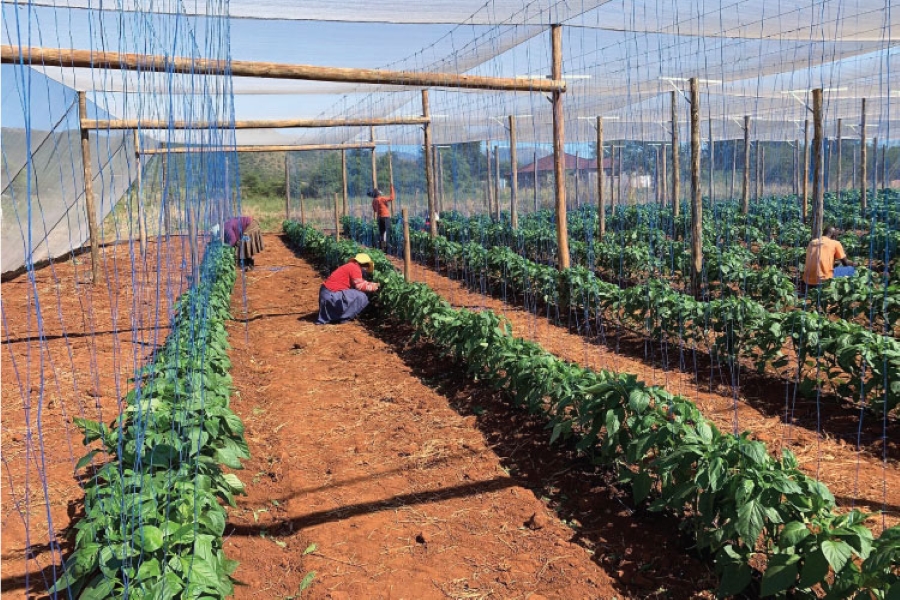SA retail sector must do more to produce independent entrepreneurs
01 June 2023

By Max Oliva, CEO, The SPAR Group Southern Africa
The retail sector in SA is currently facing a challenging phase due to inflationary pressure, weakened global supply chains, load shedding, and economic, political, and infrastructure weaknesses that are squeezing margins and threatening bottom lines. At The SPAR Group, we are committed to driving economic turnaround by fostering the growth of entrepreneurs that the country desperately needs.
Adding more entrepreneurs to the SA business landscape has significant knock-on effects. It means that entire families can join the mainstream economy, people in the community are lifted out of jobless queues, skills are transferred more broadly, and raised living standards help pull SA out of its poverty trap.
There is no denying entrepreneurship and small business development across the supply chain is the major jobs and growth driver SA needs. After all, nearly one-third of people in OECD member countries are employed in micro-enterprises with less than 10 employees, and two-thirds are employed in SMEs. In many regions and cities, SMEs have been the main drivers of job creation and they often contribute to the identity and social cohesion of local communities, according to the Global Entrepreneurship Monitor (GEM). In 2013, only 8.2% of South African early-stage entrepreneurs reported that they anticipate creating no new jobs, but this figure significantly increased to 41.6% in 2021, above the
The SPAR Group firmly supports the move to revitalising the entrepreneurship eco-system across SA – and this is reflected in real growth, rather than setting up plans and talk shops.
Despite the current economic challenges, the total number of independent retailers that (unlike a franchise, we offer full, independent ownership models – meaning owners choose how to run their stores, who to buy from etc) SPAR serve in Southern Africa increased from 2,440 in 2021 to 2,509 in 2022. This comes as many international retailers saw a decline in new openings over the same period. Going into the second half of 2023, our aim is to continue with and accelerate this expansion.
To me, the reason behind this success and why so many entrepreneurs see value in an independent ownership model like ours is they understand the powerful value creation opportunity. Firstly, they own their stores outright and quickly gain wealth after starting from humble beginnings; their families benefit for generations to come (many stores, and notably a rising number in rural areas, pass down through the generations to the children and children’s children of founders); they become a part of building broad value chains that benefit the economy; and notably become job creators for communities. Add to this the direct connection to uplifting communities and doing good and it is clear this is a career path in high demand, is extremely rewarding and will continue to grow into the future in SA.
At The SPAR Group, we are in this for the long haul as we believe in Africa and her success. Our approach to further enhancing development and growth of our store footprint and the creation of value-creating entrepreneurship is modelled on ‘Ubuntu’. In this way, we empower and inspire community owners to be the best and deliver the best.
Another area where SA tends to fall behind is in support for entrepreneurs so they can navigate the numerous complexities of the modern retail business world. The SPAR Academy of Learning is making important strides in assisting with skills development and we have 297 retail delegates on the learnership and 271 on the skills programme, but I want to see these numbers continue to grow as these types of skills spark the next level of store manager, leader, and owner that our economy needs.
The SPAR Rural Hub goes further and supports small-scale farmers and creates markets for their products. This contributes to job creation, income generation, infrastructure development, skills transfer and empowerment while creating a food system that provides affordable and nutritious fresh produce. Small supplier development is another important part of building the value-based eco-system and this means embracing more micro and small suppliers within agriculture and manufacturing sectors.
There is no doubt SA’s economic success through job creation, will come from the development of sustainable entrepreneurial businesses moving forward. The retail sector can play a significant role in helping but a major focus must be placed on empowering and developing more retailers with the capacity to be the best within their communities. I am extremely pleased with the growth in our rural network and look forward to continued success.